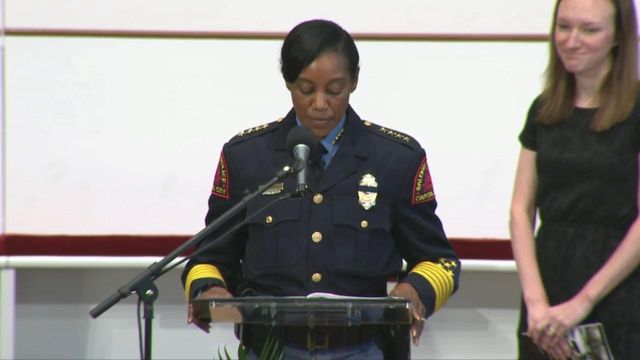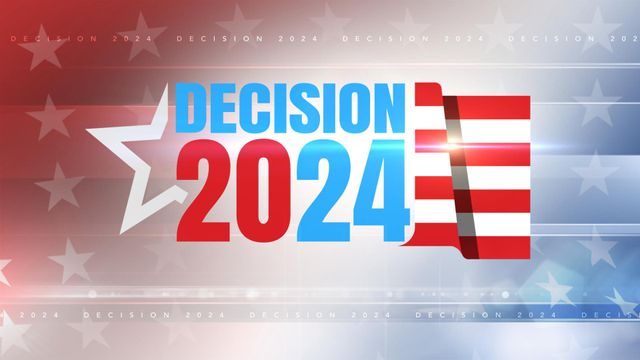Biden Warns China of ‘Consequences’ if It Aids Russia in Ukraine War

WASHINGTON — President Joe Biden warned President Xi Jinping of China on Friday of “implications and consequences” if Beijing decides to give material aid to Russia to support its war in Ukraine, the White House said.
During a nearly two-hour video call, Biden laid out for Xi the punishments the United States and its allies had imposed on Russia after it invaded Ukraine last month, said a senior U.S. official, who spoke to reporters on the condition of anonymity to more freely discuss the diplomatic exchange. And he made the case, officials said, that China would pay a similarly heavy price if it backed President Vladimir Putin of Russia in the fight, less than two months after Putin and Xi declared a partnership in facing off against the United States and the West.
“He made clear what the implications and consequences would be if China provides material support to Russia as it conducts brutal attacks against Ukrainian cities and civilians,” White House press secretary Jen Psaki told reporters Friday afternoon. She declined to say how Xi responded or give details on the costs the United States has threatened to impose on Beijing.
The call was the culmination of an effort to cut off Russian appeals to China for help, as its invasion plan runs into trouble. Biden’s national security adviser issued a similar warning to his Chinese counterpart in Rome earlier in the week, setting up the video call Friday between the two leaders.
In conversations this week, administration officials said they were concerned Beijing would try to appease both sides, publicly urging calm while quietly fueling the Russian effort and nurturing its relationship with Putin. Some of them pointed to how China had dealt with North Korea — calling for it to rein in its nuclear weapons program, but providing energy and other support to make up for United Nations sanctions.
The measures against Russia have also mainly taken the form of sanctions, but on a scale that appeared to surprise Putin, blocking him from even accessing much of the foreign reserves he had amassed in an effort to “sanctions-proof” the Russian economy. The effects have rippled outward, bringing the ruble to new lows and forcing credit agencies to warn that the Russian Federation was on the brink of default on its sovereign debt.
In its public messages, the White House is implying that the United States could impose what are called “secondary sanctions” on China, the world’s second-largest economy. Of course, unlike Russia, China’s size and economic reach mean penalties against it could reverberate in a much bigger way across the global economy, and various governments and companies could lobby heavily against such sanctions.
The conversation took place at a key moment in the war, just as Russia is seeking to take Kyiv, the Ukrainian capital, and expand control of the southern coast. But the Russian military is reeling from high casualties — 7,000 or more Russian soldiers killed, according to a conservative American intelligence estimate — and the discovery of critical gaps in its prowess.
U.S. officials have warned that Putin is hoping to secure economic help, military hardware and rations for troops from China. U.S. officials have leaked those findings, perhaps to both embarrass Putin and put China’s leadership on the spot.
U.S. and European officials see China’s role in the conflict as critical, and decisions by Xi could push the war in different directions — perhaps toward a cease-fire or more robust diplomatic talks, or toward renewed momentum by the Russian forces in their deadly offensive. Xi, who has built a bond with Putin over years, gave no indication he would help seek a diplomatic solution, according to an official Chinese readout of the call.
That summary emphasized the friction between China and the United States over Taiwan before addressing Ukraine. It said Xi pointed out that “the situation in Ukraine has developed to this point, which China does not want to see.” He reiterated standard talking points that China would provide humanitarian aid and that Russia and Ukraine should hold peace talks. Xi did not suggest any role China could play in ending the war, and instead said the United States and NATO should talk to Russia to resolve the crisis.
Xi also used a phrase he and other Chinese officials have previously employed when blaming troubles on the United States: “Let he who tied the bell on the tiger take it off.”
Tensions between the United States and China have grown since the invasion because of Beijing’s persistent alignment with Moscow, even as the Russian military kills thousands of Ukrainian civilians.
On Thursday, Secretary of State Antony Blinken delivered his strongest public warning yet to China, saying the United States “will not hesitate to impose costs” if China gives military aid or other support to Russia. He and other officials say China’s strategy is to keep up a pretense of neutrality while siding with Russia. Jake Sullivan, Biden’s national security adviser, gave similar warnings to Yang Jiechi, a top Chinese foreign affairs official, when the two met in Rome on Monday. U.S. officials told reporters a day before those talks that Russia had asked China for military and economic aid after it began its war, and a Pentagon official said there were indications China was leaning toward obliging Russia on military support.
China could be held responsible for violating international law if it gives military aid to Russia, according to two prominent law professors, Oona A. Hathaway of Yale and Ryan Goodman of New York University.
Washington is also watching for any signs China might try to help Russia blunt the effect of the sanctions imposed by the United States and its European and Asian allies. Large Chinese companies will likely avoid overtly violating those sanctions for fear of jeopardizing their global commerce.
“China does not want its struggling economy to be hit by sanctions, and the Biden administration is mindful of the economic fallout of imposing them,” said Daniel R. Russel, a former assistant secretary of state for East Asian and Pacific affairs.
China analysts doubt Xi will distance himself from Putin. The two have met 38 times as national leaders and developed a bond that is highly personal. They share a major strategic interest in trying to weaken U.S. power. At their last meeting, just two weeks before Putin’s invasion, they issued a 5,000-word statement that said their partnership had “no limits” and that they intended to stand together against U.S.-led democratic nations.
For weeks, Chinese officials have blamed the United States for the war and echoed Putin in criticizing NATO, while expressing concern for the humanitarian crisis. Chinese diplomats and state media organizations have amplified Kremlin propaganda and a conspiracy theory about Pentagon-funded bioweapons labs in Ukraine.
On Wednesday, Xue Hanqin, the Chinese judge at the International Court of Justice, sided with the Russian judge in dissenting from a ruling that Russia must immediately end its war in Ukraine. The vote was 13-2.
Hours before the call Friday, a Chinese foreign ministry spokesperson, Zhao Lijian, kept up a combative tone. Asked by a reporter about China’s views on civilian casualties in Ukraine, he said, “As the culprit of the Ukraine crisis, why does the U.S. keep smearing China instead of reflecting on the security predicament in Europe caused by the eastward expansion of U.S.-led NATO?” China’s refusal to condemn Russia’s atrocities and its endorsement of Russia’s views on NATO have made European nations more suspicious of Beijing. Leaders of nations in the European Union, one of China’s largest trading partners, talk about China in increasingly hostile tones, a situation that could worsen if Xi continues his support of Putin.
“China has a strategic opportunity to tie itself to the global order, which has fueled its economic growth,” said Alina Polyakova, president of the Center for European Policy Analysis in Washington. “Or it could make an ideological decision to align itself with Russia.
“In the end the Russian economy is not the golden goose for China’s growth,” she said. “It is Western countries.”
But Kevin Rudd, former Australian prime minister and current president of the Asia Society in New York, said that “China saw today’s call as an opportunity to not only wash Beijing’s hands of responsibility for ending Putin’s blitzkrieg in Ukraine, but to also continue to paint the United States as responsible for Russia’s actions in the first place.”
He noted that when Xi told Biden, “Let he who tied the bell on the tiger take it off,” he was referring to the United States.
“But the fact is that China is the only power capable of getting Putin to withdraw,” Rudd said, “and it is unwilling to do so.”
Starting in November, U.S. officials began sharing intelligence about Russia’s troop buildup around Ukraine with Chinese officials and urged them to ask Putin not to invade, but were repeatedly rebuffed, U.S. officials have said. A Western intelligence report said senior Chinese officials asked senior Russian officials in early February to delay an invasion of Ukraine until after the Winter Olympics in Beijing, U.S. and European officials have said.
On Friday, Taiwan’s defense ministry confirmed reports that a Chinese aircraft carrier, the Shandong, sailed through the Taiwan Strait just hours before Biden and Xi spoke. Taiwan remains the most sensitive and intractable issue between China and the United States. Putin’s invasion of Ukraine has underscored questions over whether China would try to invade the democratic island, which is claimed by Beijing but has never been under Communist Party rule.
The Taiwanese defense ministry declined to comment on reports that a U.S.-guided missile destroyer shadowed the carrier for part of its route.
The United States provides defensive equipment to Taiwan and maintains “strategic ambiguity,” meaning it leaves open whether it would send its military to defend Taiwan if China tries to invade.
A U.S. official said Biden reiterated to Xi on the call that the United States abided by the “One China” policy, which acknowledges but does not endorse Beijing’s insistence that Taiwan and China are part of the same country.
At a news briefing, Psaki said that after the call, the United States still had concerns about how China would react. “We will continue to watch until we see what actions they take or don’t,” she said. This article originally appeared in The New York Times.









